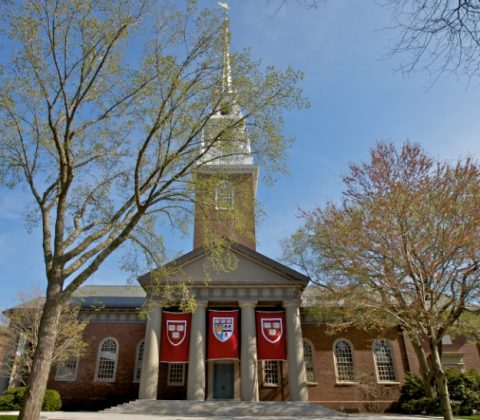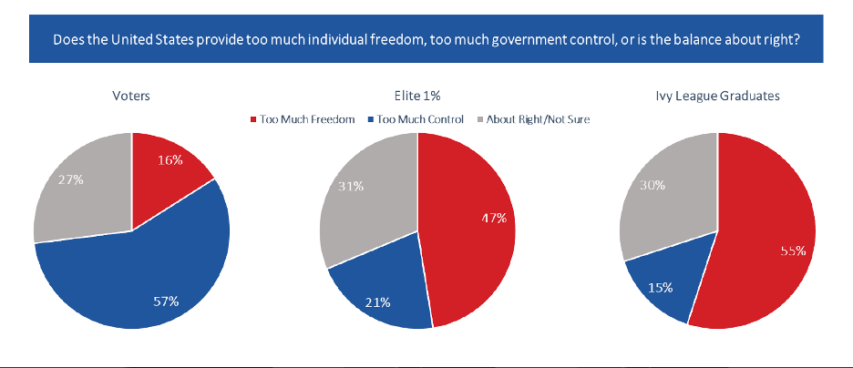“You’re in a heap o’ trouble, boy.” Or girl. What follows are the reasons — or at least the big ones — why you’re so thoroughly screwed, along with some suggestions for self-help at the end.
You tend to loathe Boomers and Generation X, I know. I don’t actually blame you for that, at least not entirely. Some of you, though, the Millennials who lump all the above together, without exception, strike me as singularly stupid and ignorant.
Moreover, the reasons you have for loathing them are somewhat misplaced. You tend to think — not without some reason — that the Boomers, especially, robbed their future, which is to say you, personally, to pay for largesse for themselves in the present.
It’s true enough, but it is neither the really awful thing they did to you nor does the complaint portray you in any particularly favorable light. “Those damned Boomers; they took everything and now there’s nothing left for us.” Yeah … you know what that sounds like? It sounds like the whining of one group of thieves over the success of a better or, in this case, merely luckier group of thieves who got to the big haul first. Yes, it really does.
Sorry, but the damage the Boomers and Xers did to you wasn’t primarily fiscal. No, no, the damage they did – or allowed – was to you, as a person. That’s the real crime. They didn’t just rob you of some money in advance. They didn’t just vote for a series of politicians and political programs and giveaways that ran the economy into the ground.
No, they stole from you — or allowed others to steal from you — some key elements of personhood, especially the ability to engage in critical, logical thinking. That’s right, you were not educated, whether in kindergarten or in the kindergartenesque, safe space segregated, snowflake sanctuary schools we call colleges and universities. Yes, these institutions of miseducation were supposed to teach you how to think. Instead, they taught you what to think and stunted your native ability to think. If you ever start to spout bright green feathers? Yes, this is the reason why; your teachers demanded that you become a parrot.
Tom Kratman, “It’s Up to You, Millennials. Deflect or Be Doomed”, Milo, 2017-12-06.
May 2, 2024
QotD: Fomenting inter-generational hatred
April 26, 2024
Out – “GenZ”: In – “Waffen ZZ“
Peachy Keenan invites us to meet the new hotness, the Zoomerwaffen:
These crazy Zoomer kids are bringing back all the old trends: baggy jeans, the band Sublime, and casual, no-big-deal, fanatical anti-semitism. When I was in college, the only people who still hated Jews were Arabs and skinheads. In 2024, hating Jews is even cooler than having retarded pronouns!
“Never again” was the promise Jews made to themselves after the Holocaust and it held for almost 80 years, but it looks like we are in fact about to do it again. It’s starting, ironically, on the same elite college campuses that were the birthplaces of the “inclusion” movement of recent years. Our finest universities have spent the last 30-odd years “abolishing hate”, establishing “safe spaces”, and forcing tolerance down students’ throats until they gagged on it.
But also we have to acknowledge that demands from Jewish students for special protections against hate speech, harassment, violence, and bigotry, while totally justified, tend to stick in the craw of other identity groups who have been the target of widespread vilification and hate on campus for years, right here in the United States.
The Zoomerwaffen are here and they are coming for the Jews — the same way their college came for the straight white males.
Zoomerwaffen SS officer Klaus Von Chad in his Amazon keffiyeh cheers as the American flag is taken down and burned.
Yes, some of the Zoomerwaffen even look like Nazis, apparently. These wild-eyed Ivy League coeds have taken a break from rizzing each other up and accidentally overdosing on fentanyl so they can goof around in keffiyahs, call for the slaughter of a persecuted religious minority, and ululate in their Lululemons as they are arrested for insurrection. (Insurrection is good now, Grandpa!).
I had to laugh when I saw Ilhan Omar’s unfortunate daughter arrested at Columbia for leading some anti-semitic protest. Bit on the nose, even for the Omar family, isn’t it? Ilhan’s little nepo meeskite got kicked out of her dorm and suspended from school, which means she can expect a job offer from MSNBC any minute now.
Since October 7th, Jews have been under attack everywhere and literally Hamas has replaced BLM as the coolest club in America for progressive, “love is love”, white kids.
Welcome to the Swiftie-to-Jihadi pipeline!
April 5, 2024
QotD: When the faculty lounge turned nasty over the electric vehicle charging stations
You’ve heard me say quite often that the nicest car in the faculty lot always belongs to the wildest-eyed Marxist. Given what we know about the stiffness of the “most insane Marxist” competition among eggheads, it seems to follow that the faculty lot must look like a rap video — Bugattis and Bentleys and Maybachs everywhere. But that’s not the case, comrades.
Not because academics are worried about anything so prole as hypocrisy — as we know, cognitive dissonance only affects the Dirt People — but because eggheads operate on a different scale of values. Bentleys etc. are what those people drive … so professors have to kick it bobo style. Thus the faculty lot is filled with Priuses (Prii?), Teslas, and so forth. Back when The Simpsons was funny, it had a throwaway joke about Ed Begley Jr. driving a car so eco-friendly, it was powered entirely by his own sense of self-regard. If they actually marketed those, every professor in America would have one … but since they don’t, the “eco-pimp my ride” competition continues unabated.
Which is hilarious for two reasons. First, there isn’t — there won’t be, there can’t be — sufficient infrastructure to support more than a token few electric vehicles (EVs). Flyover State is nothing if not eco-friendly, though, and so they fell all over themselves giving the faculty charging stations … but see above: All they could manage was one charging station per level, in one parking garage. Which naturally led to much agonizing in the Faculty Senate, not to mention the student newspaper, the town newspaper, and every boutique coffee place and head shop in College Town. How can charging station time be most equitably distributed? Does the Lesbian Negress outweigh (supply your own joke here, please) the White FTM tranny? What about the genderfluid hemophiliac Inuit? Where does the wingless golden-skinned dragonkin rank?
Severian, “Luxury Beliefs”, Rotten Chestnuts, 2021-06-03.
March 29, 2024
“TamponGate” at Vanderbilt
Suzy Weiss at The Free Press relates a story that’s just too weird not to share:
No one is ever going to let me guest-host this digest again, so I might as well tell you about some Vanderbilt girl’s tampon. This all started yesterday morning, when a wave of undergrad students rushed Kirkland Hall, where Vanderbilt’s chancellor’s office is located. Thus began their sit-in — a response to the college administration shutting down a student government vote over whether the school should divest funds from Israel.
The protesters remained there for nearly 21.5 hours — blowing Harvard’s 12-hour “hunger strike“, also known as a good night’s sleep — out of the water, before police began removing and arresting students, some of whom have since been suspended.
There are many dumbfounding moments from this latest campus frenzy — for example, when the students, arms linked, called the black police officers protecting the chancellor “puppets”. When food was brought in from Panera Bread by the administration for the officers but not the students, it was treated like a human-rights abuse.
But the tampon takes the cake. (Major props to Steve McGuire for compiling the best episode of the internet since yesterday.)
Here’s what went down: during one of those 21.5 hours of the protest, probably at an ungodly one, a few of the student demonstrators decided to call 911. That’s because their friend, who was part of the sit-in, had to change her tampon.
Specifically, she was “being denied the right to change her tampon that has been in for multiple hours, which leads to an increased risk of toxic shock syndrome.”
The frankly Zen-like 911 operator, who deserves a raise, was understandably confused. “Ma’am, do you have an emergency?”
Um, yes?! The student on the phone requests urgent medical assistance.
“You’re telling me your friend in Kirkland needs an ambulance. Is that what you’re telling me?”
Then in another video, one of the protesters—in a keffiyeh and a mask—approaches the police and an administrator, who was indeed in a sweater vest, demanding to know WHAT. WILL. HAPPEN. to her friend, should she leave the sit-in to change the tampon in question. The adults calmly explain that she won’t be arrested if she leaves the building. But can they confirm that she will never be arrested, ever?!
“She does not feel safe,” someone says off-screen, punctuating it with claps.
This whole thing makes the Nick Christakis Halloween costume struggle session look like a teachable moment. It must be seen to be believed. Watch all the videos in Steve’s thread here.
For starters, if having a tampon in for “multiple hours” is grounds to call for an ambulance, I should have been dead years ago. Second, this student was being denied no such right. All she had to do was get up, leave the protest, and find one of the hundreds of bathrooms that she had access to elsewhere on campus. Pro tip: wear a pad to the all-night protest. The First Amendment doesn’t come with a heating pad.
It’s all very Karen, to borrow a trope from 2020, especially when a protester demands the administrator find someone who can get them some answers. Just like middle-aged women who think dressing down the manager will somehow earn them a full refund, these students have convinced themselves that by linking arms and screaming “shame” at their college’s chancellor, they are stopping a war in the Middle East.
Don’t these authority figures realize they are standing in the way of a global intifada, which is also — obviously — a totally good thing?
We find out in a subsequent video that indeed the tampon was removed, though not in any bathroom. Reader, it came out at the sit-in, like so much urine in so many plastic water bottles. A woman on the microphone calls it “the most depraved shit I’ve seen in my entire life”.
Hard agree.
March 28, 2024
QotD: Honest scholarship … and whatever passes for scholarship these days
Although not one in ten thousand academics and other intellectuals would express dissent from what Bob says above [Bob Higgs’ post on Facebook], quite a few express their disregard for what he says through their actions. As Bob notes, an excellent example of this academic utter shoddiness or execrable dishonesty (you pick) is Duke University “historian” Nancy MacLean and her well-documented penchant for presenting fabrications as facts. Another example is Cornell University “historian” Ed Baptist.
Equally distressing as these (and an increasing number of other) examples of scholarly utter shoddiness or execrable dishonesty is the complete incredulity of many people in accepting the “findings” of such “scholars”.
A perverted form of amusement can be had by imagining what sort of “scholarly” output you might offer to the world were you to operate according to the standards used by “scholars” such as Nancy MacLean. Free to present fiction as fact, you might, say, claim that because Dr. MacLean studied at the University of Wisconsin, and because Wisconsin was once home to the serial killer Jeffrey Dahmer – and because in her book Democracy in Chains she did not explicitly denounce serial killing – that Dr. MacLean’s work is a surreptitious attempt to justify serial killing.
Of course, any such conclusion would be both preposterous and inexcusably unethical. Anyone who (unlike me here) seriously offered such a wacky, detached-from-all-reality, ideologically motivated thesis to the public should lose not only any claim to scholarly respect, but any claim to respect of any sort. And yet the bases for the conclusions reached by “scholars” such as Dr. MacLean are no more realistic than are those in my previous, satirical paragraph.
Don Boudreaux, “The Wisdom of Bob Higgs”, Café Hayek, 2019-08-29.
March 15, 2024
Peter Turchin’s notion of the “overproduction of elites”
Severian is on a mini-vacation at the moment, but still managed to find time to share some thoughts about Turchin’s “overproduction of elites”:

University graduation – a large crowd of students at a graduation ceremony in Ottawa, Ontario. This was the thumbnail image used on the “Elite overproduction” Wikimedia page, which seemed quite appropriate.
Photo by Faustin Tuyambaze via Wikimedia Commons.
Let us consider “the overproduction of elites”. Those who love Peter Turchin’s work love this phrase, as it finally gives a name to a phenomenon we’ve all noticed: The creation, promotion, and indeed valorization of what would more properly be called social barnacles — they don’t move, can’t change, and eventually bring whatever they infest to a complete halt. Those who dislike his work often haven’t read it, so they object to the use of the word “elite” — again, these are social barnacles; what’s elite about them?
Which is precisely Turchin’s point — “elite” is a descriptor of their lifestyle, and most importantly their self-image; it is almost perfectly opposed to their actual utility. The modern Ed Biz is set up to do little else but produce these (pseudo) elites, and therefore a kind of Say’s Law takes hold. Say’s Law, you’ll recall, is vulgarly summarized as “Supply creates its own demand,” and that’s what we see with the (pseudo) elites churned out by every college in the land — they expect, indeed they demand, “jobs” commensurate with their “education”, and thus make-work “jobs” in the Apparat are brought into being.
They take out massive student loans to get the “jobs”; they “work” the “jobs” to service the debt, and so on.
But that’s true of most “white-collar” “jobs” these days. What separates the “elites”, in Turchin’s usage, from the rest of them is not their utility, or lack thereof — the economy, such as it is, would function just as well (or not) with far fewer lawyers, accountants, insurance adjusters, and so on. The difference, comrades, is what we must call Revolutionary Class Consciousness,
stealingnationalizingsocializingliberating a phrase from Lenin.An accountant, I’d wager, views his work as a technical specialty. They’re “rude mechanicals” (that’s Shakespeare, darlin’; evidently Mr. Ringo is an educated man). Maybe not so “rude” — accountants make good scratch; they’re middle to upper-middle class, economically — but basically technicians. Accounting is a highly-trained, well-compensated job, but that’s all it is: A job. Accounting is what an accountant does; it’s not what an accountant IS. Contrast that to the overproduced “elites”, in Turchin’s sense, and you see what Turchin’s sense really means: An “elite” really IS his job title.
Note the shift: His job title. As we all know, so many of the overproduced “elite” do no meaningful work. How could they? We could easily do this for most any “job” in the Apparat, but one example will suffice. Consider “Journalist”. Formerly called “Reporter”, and back then it required some actual productive output. Some “shoe leather”, as the phrase was. To find out what they were up to at City Hall, you actually had to physically go down to City Hall and follow the Mayor around. These days — the days when Reporters are now Journalists — it’s just stenography. And not even real stenography, Claudine Gay-style stenography — the Mayor’s press secretary (who probably went to college with you) emails you a press release; you change a word or two and then reprint it, basically verbatim, under your byline.
A monkey could be trained to do it. Hell, a chatbot could be trained to do it, and that’s probably a good quick-and-dirty definition of a Turchin-style overproduced “elite”: If whatever “work” he does could easily be replaced by a chatbot, with no appreciable drop-off in either productivity or quality. Because that’s the key to understanding these people: They know damn good and well, at some almost-but-not-quite conscious level, that they’re social barnacles. That is the “base” upon which the “superstructure” — again stealing terms from Onkel Karl — of their Revolutionary Class Consciousness is built.
February 28, 2024
The rise of the “Pretendian” is an inevitable consequence of academia’s ultra-woke culture
Freddie deBoer summarizes why we’ve seen a vast increase in the number of Pretendians in western academia, but especially in Canada and the United States (and we can be almost certain that there are a lot more who haven’t yet been revealed, because the incentives to pretend are so enticing):

“The Pretendians”, a CBC documentary – https://www.cbc.ca/passionateeye/episodes/the-pretendians
- Certain jobs in academia are highly prized
- There are far more applicants than openings for those jobs and so competition for them is incredibly fierce
- Representing yourself as a member of an underrepresented minority significantly improves your odds of getting such a job, and in certain fields representing yourself as a person of indigenous descent improves those odds dramatically
- Indigenous identity is easy to fake and difficult to disprove, and the cost of accusing someone else of faking it, in academia, can be very high indeed
- Most crucially of all, the social culture of academia strongly prohibits speaking frankly about these facts
Jay Caspian Kang’s new piece on the “Pretendian” crisis in academia is deeply researched and compulsively readable, and read it you should. But fundamentally everything you need to know about the problem is in the numbered list above. You’ve created a fiercely competitive process in which a segment of people are given a very large advantage, there are few if any objective markers that can disprove that someone is a member of that segment, and you’ve declared it offensive to question whether someone really is a member of that segment, outside of very specific scenarios. (When I was in academia people spoke very darkly about the concept of ever questioning someone’s indigenous identity, called it the act of a colonizer, etc etc.) The obvious question is … what did you think was going to happen? Humanities and social sciences departments have, through the conditions described above, rung the dinner bell for people pretending to have indigenous heritage. They now act shocked when such people show up. I find it disingenuous and untoward. This behavior is the product of the incentives that you yourself built. Of course it’s a stain on the integrity of the fakes. But you made it inevitable that this would happen. Reap what you sow.
February 21, 2024
“College attendance is our society’s only meaningful initiation ritual, and it thus assumes an existential importance that renders it near-impossible to replace until an alternative is found”
Johann Kurtz believes the modern university’s survival despite its increasingly irrational and counterproductive actions can be explained as the last modern example of an initiation ritual:
Our understanding of the college system is incomplete. Until we correct this, we won’t be able to fix or replace the system.
First, consider a paradox: college attendance remains near all-time highs [Link], yet the majority of Americans no longer believe it is worth the cost [Link].
The college system seems irrationally resistant to declining value. We must therefore ask: is there an important non-rational reason for college attendance which we have failed to acknowledge?
I believe the answer is “Yes”. College attendance is our society’s only meaningful initiation ritual, and it thus assumes an existential importance that renders it near-impossible to replace until an alternative is found.
Our culture is historically anomalous in lacking explicit initiation rituals.
Mircea Eliade, the great religious historian of the 20th-century, defined initiation rituals as “a body of rites and oral teachings whose purpose is to produce a decisive alteration in the religious and social status of the person to be initiated“.
In philosophical terms, initiation is equivalent to a basic change in existential condition; the novice emerges from his ordeal endowed with a totally different being from that which he possessed before his initiation; he has become another.
— Mircea Eliade, Rites and Symbols of Initiation: The Mysteries of Birth and Rebirth
In Europe, fully expressed initiation rituals were common until the end of the Middle Ages, and in the wider world, until the end of the First World War. Now, they only persist in the West in the sacramental practices of devout Christians (baptism, confirmation, and so forth).
Once, however, these practices were of tremendous importance to us, as Eliade makes clear:
To gain the right to be admitted among adults, the adolescent has to pass through a series of initiatory ordeals: it is by virtue of these rites, and of the revelations that they entail, that he will be recognized as a responsible member of the society. Initiation introduces the candidate into the human community and into the world of spiritual and cultural values. He learns not only the behavior patterns, the techniques, and the institutions of adults but also the sacred myths and traditions of the tribe, the names of the gods and the history of their works …
In the absence of local community rituals, the universities are a natural site for their replacement. These have always been religious sites, although the nature and expression of this religion has transmuted over time.
H/T to Bruce Gudmundsson at Extra Muros for the link and his additional comments:
This hypothesis accords with the argument, made often in this blog, that education and schooling are two very different things. At the same time, it suggests that one of the definitive purposes of Extra Muros, the encouragement of young people to eschew the conventional college experience in favor of a combination of practical pursuits and systematic self-tuition, may be a fool’s errand. After all, if four (or five or six) years of drinking second-rate beer from red plastic cups does for the office-bound folk of North America what fear-filled rites of passage do for members of the bone-in-the-nose set, then I might well be sailing against the wind.
Upon second thought, I find hope in the possibility that the parasite (or, to be more precise, the cancer) promoted by d’Angelo, Kendi, and company will soon deal the coup de grâce to its mortally-wounded host.
The coming-of-age ordeals of warrior tribes demand that boys who would be men prove possession of such martial virtues as courage and self-command. The rites-of-passage of the modern middle classes, however, require that postulants demonstrate a mixture of conformity, conscientiousness, and, to a diminishing degree, intelligence. (Readers familiar with the oeuvre of economist Bryan Caplan will recognize the source of this troika. However, it is worth noting that, while Professor Caplan will occasionally tip his hat in the direction of the campus-based building of basic brain-power, he devotes far more attention to the collegiate cultivation of the two components of Sitzfleisch.)1
The cult of Marx, Mao, and Marcuse demands complete compliance, not only with its basic tenets, but also with any changes in the party line that, from time to time, may occur. (I am old enough to remember the days when campus commies of the caucasian persuasion could don dashikis without facing charges of “cultural appropriation”.) Thus, those who sit at the feet of the acolytes of critical theory learn an art of great value to people who wish to thrive in a large organization, that of discarding the old hat, and putting on the new one, at just the right time. (Think, if you will, of the mid-level employees of the McDonalds Corporation, who, over the course of the last four decades, were obliged to alter their opinion of the McRib sandwich more often than they changed the oil in their cars.)
1. Bryan Caplan, The Case Against Education: Why the Education System is a Waste of Time and Money (Princeton: Princeton University Press, 2018), pages 9-21.
February 6, 2024
The Sky People hold very different beliefs to those untouchable Dirt People
Rob Henderson says that the gap is “Grand Canyon-sized” between ordinary Americans and the Ivy League grads who cluster at the top of every progressive organization:
55% of Ivy League graduates believe that the U.S. “provides too much individual freedom” compared with just 16% of ordinary U.S. voters.
Back in 2019, as I was developing what became the luxury beliefs framework, I read a recently issued chapter published by Cambridge University Press titled “Why Are Elites More Cosmopolitan than Masses?”
Authored by a team of social scientists, this 2019 paper reports stunning gaps in political views and outlooks between elites and ordinary people in various western countries.
In the introduction, they suggest that elite attitudes are expressions of cultural capital. That is, the large gap in views between elites and everyone results from elites drawing symbolic boundaries between themselves and the provincial masses.
Indeed, another report found that 65 percent of Americans believed that the most educated and successful people in America are more interested in serving themselves than in serving the common good. This view is held across the board — across age, gender, race, political party, and ideology.
The authors of the 2019 chapter write:
Mastering intricacies of gender and race relations discourse and behavior has become a marker for belonging to the cosmopolitan class, in a similar way that tastes for classical music and art were markers of bourgeois culture in the 19th and 20th centuries.
Interestingly, the researchers find that social background and ideological affinities account for elite similarities more so than educational attainment. This might be one reason why, despite obtaining the same degrees from the same institutions as many elites, I still retain an outlook reflective of my provincial upbringing.
Following my experiences in the Los Angeles county foster system, my adoptive family and I settled in a dusty lower-class town in the northernmost region of California—a place just as provincial as any rundown neighborhood in flyover country—where I spent most of my youth.
The authors of the paper measured the opinions of elites (those holding the highest positions in each sector) across various fields including politics, finance, academia, and media, as well as the opinions of ordinary people.
Relative to the masses, elites are more likely to agree with statements such as “We should do everything possible to fight climate change, even if it slows economic growth.”
And elites are more in favor of allocating authority not to local or national governments, but to global organizational bodies (e.g., the U.N.).
The researchers also found that elites are significantly more pro-immigration, as measured by the extent to which they agreed with statements like “When jobs are scarce, employers should give priority to people of [this country.]”
I thought about those results for a long time. Especially as I came across another study indicating that educated people are more likely to express prejudice toward immigrants who are described as highly educated, relative to less educated, and are therefore seen as job competitors.
Among university students, attitudes toward immigrants were most negative when the immigrants had a university education, and most positive when the immigrants had little to no formal education. It’s nice for the educated class when immigrants provide cheap hired help and open interesting restaurants. They’re less excited when immigrants are competing with them for the same jobs. If thousands of people with bachelor’s and postgraduate degrees from, say, China and India, were unlawfully entering the U.S. each day, my guess is current elite attitudes around border security would be very different.
In a way, it’s rather reassuring that the Sky People are still demonstrably human, based on the change in opinions when it’s their ox being gored …
February 3, 2024
QotD: The Postmodernist’s Dilemma
If Leftists could see the obvious consequences of their own positions, they wouldn’t be Leftists. We know this. But since it’s their world, and we have to live in it as best we can, it helps to go back and spell out those obvious consequences from time to time. The biggest, most obvious one of all is what I’m going to call The Great Contradiction. It’s the obvious next step from the Great Inversion: If “whatever is, is wrong”; then all authority, everywhere, is illegitimate — which includes the authority proclaiming The Great Inversion.
We could also call it “the PoMo’s Dilemma”, since this stuff originated in the ivory tower back in the Sixties, and finally broke containment in the late Seventies. Most intellectual fads quickly become caricatures of themselves, but in their haste to get to the next hot new thing the PoMos decided to cut to the chase. Postmodernism started as a self-parody. Put simply but not at all unfairly, PoMo is the assertion for a fact that there is no such thing as a fact. There is no Truth, just “truth”. No eternal verities, just perspective, just discourse; it’s all — say it with me now — “just a social construction”.
I suppose we must give the early PoMos credit for having — in a thoroughly Postmodern way – the courage of their convictions. When Alan Sokal invited the PoMos to try transgressing the Law of Gravity from his twenty-first floor apartment window, the goofs from Social Text published a “rebuttal” to Sokal, informing him, a working physicist, that they, the English Department, understood physics better than he did. He meant it as a joke, but he was really right all along about the so-called “law” of “gravity”.
That was 1996. At that point, any sane society would’ve had the editors of Social Text dragged out of the faculty lounge and shot in the middle of the quad, pour encourager les autres. But of course we chose not to. And why would we? Being close to three decades deep into the Great Inversion by then, we got much barmier stuff than anything Social Text published in freshman orientation. Stick it to The Man, we were told, and don’t trust anyone over thirty …
Severian, “Hoist on Their Own Petard”, Rotten Chestnuts, 2021-04-19.
January 30, 2024
The foul “nudgers” are at it again at Cambridge
Christopher Gage reports on a recent fun-reducing experiment by paid psychological meddlers at Cambridge University:

“Wineglass” by quinn.anya is licensed under CC BY-SA 2.0 .
Researchers found they could “nudge” people into drinking less wine when they denied the unsuspecting blighters a large 250ml measure.
Last summer, these wholly well-adjusted people convinced 21 Cambridgeshire pubs and restaurants to offer only small or medium glasses of wine. The result left the boffins breathless. But sadly, not in the medical sense of the word.
When denied a large, vivifying glass of wine, the subjects drank eight percent less than usual, and the pubs didn’t lose any money — smaller measures cost more. Puritans: two. Oenophiles: nil.
The usual suspects cooked up this obscene waste of time and money. Professor Dame Theresa Marteau, director of the behaviour and health research unit at Cambridge University, boasts lurid form in control freakery.
Her previous studies read like an almanac of neurotic impulses. The mad mullah dreams of shrinking plates and sinking sodas. This finger-wagger-in-chief obsesses with the vinous, porcine masses and what they may slip into their faces when she’s not looking. Marteau chillingly laments that large wine glasses “increase the pleasure of drinking wine”.
The fundamentally nosey swear these are the first murmurs of Utopia. Next, they’ll bend boozing regulations into a truncheon to batter the gastronomic swine over its head. They don’t stop. First, they shrink the large glass. Then, the medium glass affects as the large. What happens next? Take a wild guess.
This is not the work of some rogue Colonel Kurtz. One Daily Telegraph writer seized on the study. Employing the presumptuous “we” beloved of oppressive minds, they offered tips to help us drink less, assuming we drink large wines only because we are weak-willed effigies desperate for professional helpers to show us what’s best for us.
Advocates of “nudging” drive themselves senseless over this psychological thimblerig. The potential to correct “undesirable” behaviour proves too great to resist. They are a species of featherless biped with which I share nothing but the right to a trial before a jury of my peers.
As I write, I’ve just returned from a five-mile jaunt with 33 pounds strapped to my back. Loading a bag with weights burns double the calories. Therefore, whatever I do after that trek is my business alone. On my desk is a large glass of Portuguese red blend. Beside that soul-tingling measure sits a smouldering, hand-rolled, menthol-tipped cigarette.
Why strangers stake their mental well-being on what others put into their bodies, I will never know. Why they wish I’d sit here choking on sparkling water and its vegetable equivalent — celery — I’ve not the foggiest of insights. All I do know, friends, is that I am not the one in dire need of a few sessions with a psychoanalyst. My professional advice: Seven letters. Vulgar slang. A phrasal verb rhyming with “duck cough”.
York University’s CUPE local apparently cribs their homework from the Völkischer Beobachter
York University’s contract and part-time instructors are represented by CUPE local 3903, who’ve distributed an eye-openingly anti-semitic document with the (implied) order to interrupt normal tutorials and replace the content with Palestinian propaganda:

Detail from an official “toolkit” distributed to York University contract and part-time faculty which claims that their employer is complicit in “genocide” by the mere tolerance of Jewish groups on campus.
Photo by A Toolkit on Teaching Palestine
A new toolkit circulated to York University teaching assistants instructs them to denounce Israel at every available opportunity, even when it has no apparent relevance to the subject being studied.
“Let us collectively divert this week’s tutorials to teaching on Palestinian liberation,” reads the 15-page document circulated by CUPE 3903, the union representing York’s contract and part-time faculty.
The document adds that tutorials should be diverted to condemnations of the “Zionist Israeli state” regardless of the course that the TA is supposed to be discussing.
“It is a medical issue. An arts issue. A feminist issue. A society issue. A political issue. A cultural issue. A geography issue. An engineering issue. An architecture issue,” it reads.
The document is filled with claims denouncing Israel as a genocidal “colonial project”. Canada is treated much the same, and is referred to alternately as the “Canadian settler state” or “Turtle Island”.
The mere presence of Jewish groups on campus is also referred to as evidence of York University’s “complicity” in genocide.
The document denounces the existence of sanctioned “Zionist cultural institutions”, making explicit reference to Hillel, the world’s go-to Jewish campus organization. York is also called an accessory to genocide because of its research links with the Hebrew University of Jerusalem.
The pamphlet even provides a script for TAs to read as they inform students that the tutorial will be cancelled in favour of becoming a “teach-in … for liberation.”
“Today, I open up our classroom to bring our attention on Gaza, to speak up and stand in solidarity with the Palestinian liberation movement, and contribute in ending Canada’s and York’s complicity with genocide and the settler-colonial occupation of Palestinian land and life,” reads one introductory line.
January 28, 2024
Adolescence is “a profoundly unnatural life-stage”
Sarah Hoyt on the plight of the younger Millennials and the Gen Z kids in our over-supervised safety-at-all-costs culture today:

Child labour laws did generally get younger children out of dangerous places like mines, mills, and factories. Modern child labour laws instead keep young adults from gaining work experience in many cases.
Photo of pre-teen children working in a mill in Macon, Georgia in 1909. Photo NCLC.01581, Library of Congress via Wikimedia Commons.
Mostly, it gets attributed to “kids these days” but unless you have kids, these days, you don’t know how they are bound. And even if you do, you might not realize it, because all you see is the infantilization of a generation, and not that they, themselves, aren’t the ones doing the infantilizing, but all those “good rules” and regulations and laws are doing it.
I realized about 10 years ago that my son’s generation was about 10 years behind where we were. In their mid twenties they were doing things we did in our teens. It was disconcerting. And even I had no idea why, other than too much regimentation in school, too much of a never end of button counting, and not enough room or freedom to think or be on their own.
Since then … I’ve seen more. And a lot of the reason they are younger than we were is that the entire world is geared not to let them grow up. I mean, let’s be glad that — unprepared or not — they’re legal adults at 18, or people would be denouncing them for walking alone down the street, without an “adult” at 25.
There’s also … adolescence is in some ways a profoundly unnatural life-stage, and more or less invented in the 20th century. In the past, sure, people were children, and people grew to be adults, but there wasn’t this protracted time period where they were adults in size and at least some ability, but weren’t allowed to be adults: they weren’t allowed to earn or spend, or make their own decisions, for years.
The earn or spend thing is important. Kids used to grow along with their tasks. Read Tudor or colonial memoirs, and you find four year olds looking after cows or horses, or learning Latin, or other unlikely things even for twelve year olds in our time.
Mom went to work at 10 and started getting a salary. It wasn’t much, and 90% of it went to her parents’ budget. But she was working, holding down a job, doing things that were maybe not at adult level, but could lead to it, eventually, if she applied herself. This was normal for her generation. In my own generation, amid the working class, most people went to work at 10. Heck, amid the middle class, most people went to work at 15 or so, after 9th grade. Were they more mature than the rest of us that went all the way to college?
I wouldn’t have thought that at the time, but yes, of course they were. Most of my elementary school classmates were married, with kids by the time my biggest worries were final exams. Of course, with my intellectual pride I looked down on them but now I understand they were managing a very difficult job, which at the time I could not have done.
I always feel stunned and shocked when someone says the kids should be “holding down two jobs like I was at 16” or “working to pay their way through college”. (That last is a giggle as it has two impossibilities. Finding a job that pays enough after college which has a lot of make-work expectations, and making a full-time middle-class salary, which is what college costs these days.) Two Jobs. At 16. The difficulties in giving work to 16 year olds, increasingly restriction of hours, etc. combined with chaotic scheduling in the only unskilled jobs remaining (mostly just retail) means that until recently none of them could find A job. Let alone two. And the recently was during Covid. I haven’t seen so many little 16 year olds cashiering, or serving at tables recently. And that’s because most people I’m seeing are around my age: I guess unemployment is biting hard.
But you know, all these strong rules against “child labor” mean that most kids hit 18 or, if they’re going to college, 22 or — more likely, as most degrees (remember make work?) are taking 6 or 7 years — 24, with absolutely no job experience. Which means their applications aren’t even looked at. Not seriously.
Honestly, almost every young person — particularly young men — I know who found a job, and is doing relatively well, did so through contacts. Through friends of friends. Through knowing someone.
This is a bad sign, because it’s how Portugal functions, and it is not in any way shape or form meritocracy, which in turn contributes to other things falling apart.
But more and more what I’m seeing is young people hitting their mid twenties lost, and doing this, and doing that, and trying this and trying that, and nothing ever gels. To make things worse, they don’t have the habits mom had by 10, because they haven’t been allowed to acquire them.
There was a similar generation — one, while here we’re well into two — in Portugal, where unemployment was so bad (the generation before mine) that most people weren’t “established” on a path till their mid thirties. I’d guess about half of them never got the knack of it: of the day to day of working, fulfilling the work duties, just … the unglamorous day to day that makes us adults.
QotD: Never depend on “surveys” for real-world issues
There’s a reason “social science” is all horseshit, and that reason is: surveys. All of this stuff is based on surveys, and as it happens, I have quite a bit of experience of being on the receiving end of these. You see, back in grad school I was involved with a young lady in the Soash Department — I know, I know, but a man has certain needs, ya feel me? — and so I was always on call to take whatever goofy little tests they dreamed up, as a favor to her and her equally spastic hardcore Lefty friends. Anecdotes aren’t data, of course, but I’ve got a lot of anecdotes, and I can tell you — anecdotally — that there are two huge, self-reinforcing problems with these surveys: a) respondent pool, and b) design.
The respondent pool is, overwhelmingly, college kids taking them for class credit. Knowing what we know about Basic College Girls, who again are the majority of all college kids, is it any surprise that the results just happen to confirm the conclusions the slightly older, but no less Basic, Grad Student Girls were looking for? Throw in the design problem — questions about as subtle as “Do you think all races should be treated equally, or are you a monster?” — and you’ve got scientific proof that Liberals are good people and Conservatives suck.
Severian, “Is vs. Ought II: Moral Foundations Theory”, Rotten Chestnuts, 2021-04-20.
January 27, 2024
Modern academics “were perfectly happy to accept that evolution explains the behaviour of every other species on earth, with the exception of humans”
In the National Post, Gad Saad offers an action plan to bring our universities back to a slightly more reality-based view of the world and prevent further postmodernist deterioration:

University College, University of Toronto, 31 July, 2008.
Photo by “SurlyDuff” via Wikimedia Commons.
This year, I am celebrating my 30th year as a professor. During those three decades, I have witnessed the proliferation of several parasitic ideas that are fully decoupled from reality, common sense, reason, logic and science, which led to my 2020 book, The Parasitic Mind: How Infectious Ideas Are Killing Common Sense. As George Orwell famously noted, “There are some ideas so absurd that only an intellectual could believe them”. Each of these ideas were spawned on university campuses, originally in the humanities and the social sciences, but as I predicted long ago, they have infiltrated the natural sciences, and now can be found in all areas of our culture.
These destructive ideas include, but are not limited to, postmodernism (there are no objective truths, which is a fundamental attack on the epistemology of science); cultural relativism (who are we to judge the cultural mores of another society, such as performing female genital mutilation on little girls?); the rejection of meritocracy in favour of identity politics (diversity, inclusion and equity (DIE) as the basis for admitting, hiring and promoting individuals); and victimhood as the means by which one adjudicates between competing ideas (I am a greater victim therefore my truth is veridical).
I was first exposed to this pervasive academic lunacy via my scientific work at the intersection of evolutionary psychology and consumer behaviour. Central to this endeavour is the fact that the human mind has evolved via the dual processes of natural and sexual selection. Nothing could be clearer, and yet I was astonished early in my career to witness the extraordinary resistance that I faced from my colleagues, many of whom were perfectly happy to accept that evolution explains the behaviour of every other species on earth, with the exception of humans.
Apparently, human beings transcend their biological imperatives, as they are strictly cultural beings. This biophobia (fear of using biology to explain human phenomena) is the means by which transgender activists can argue with a straight face that “men too can menstruate and bear children”. Biology is apparently the means by which the patriarchy implements its nefarious misogyny, making us all “wrongly” believe that men can on average lift heavier weights and run faster than women, notwithstanding a litany of evolutionary-based anatomical, physiological, hormonal and morphological sex differences.
According to radical feminists, these differences are largely due to social construction. Hence, a man who stands 6-4 and weighs 285 pounds can wake up one day and declare himself to be a transgender woman. Anyone who disagrees with this notion is clearly a transphobe.









